So I’m back from Google Teacher Academy in Sydney, conducted in the Google offices located in gorgeous Pyrmont.
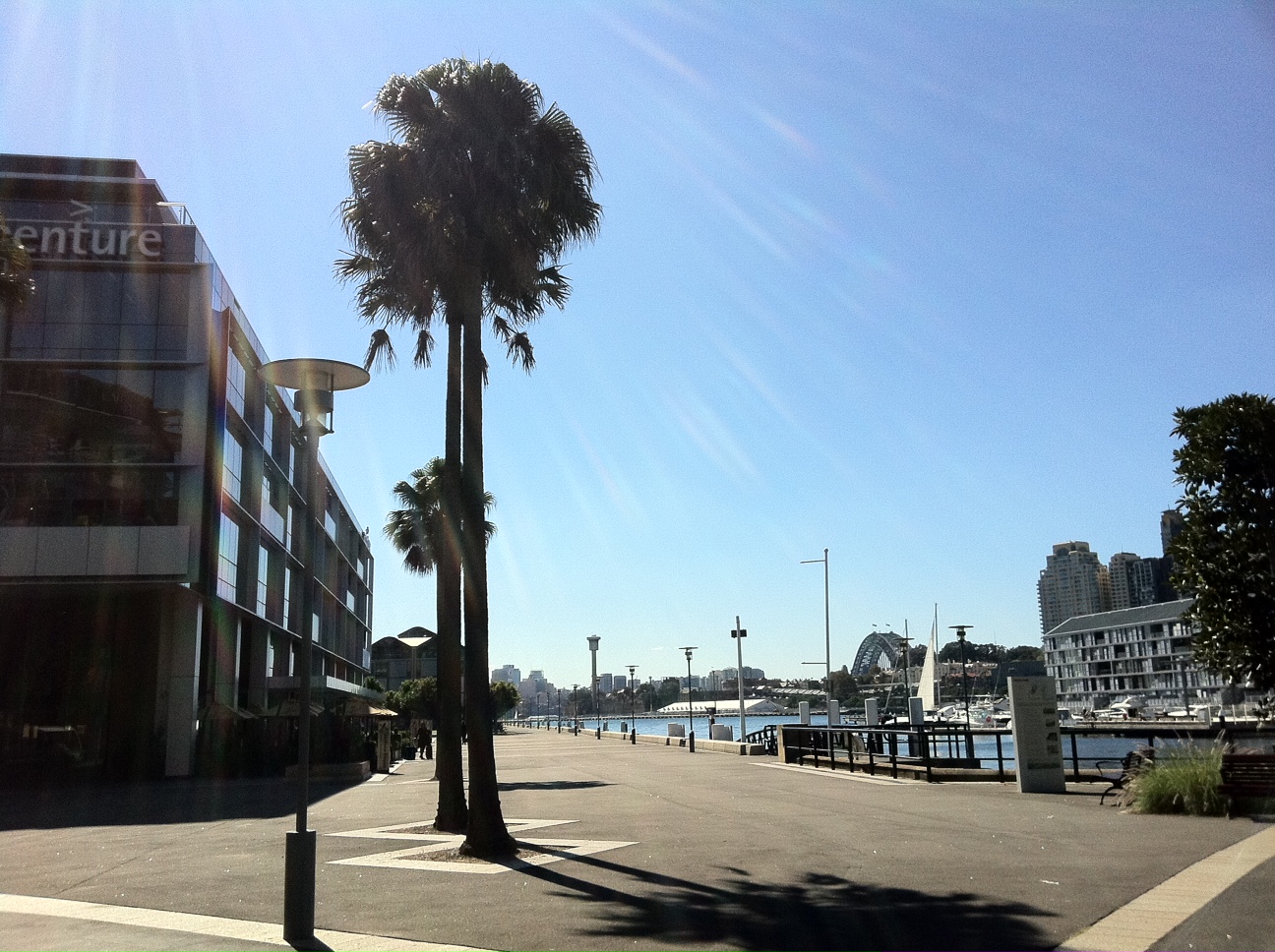
I suppose you’ve noticed my Google Certified Teacher badge taking pride of place in my blog’s sidebar. I hope that’s more a sign of what I’m going to share than any attempt at self promotion. So, you say, how was it? After the hype (which I half joking referred to on Twitter in Wonkian terms), it’s definitely time to share the experience.
For me, it was a little like T.S.Eliot said in The Dry Salvages – ‘We had the experience but missed the meaning’, that is to say, it was such a big experience, I had to come away from it to understand its impact. One and a half days in the Google offices but many weeks of suspense, attempts at imagined scenarios leading up to the much awaited day had put us all into an emotional state which delivered us to the Google headquarters as children at a birthday party. The mystery shrouding the event and Google interior wound up the intensity even tighter. It was fun spotting the large Google sign in the foyer of the building, spotting real people whose faces matched their tiny avatars on Twitter or Facebook, meeting for breakfast and become initiates by wearing the Google Teacher Academy name tags.

So, you’re saying, stop dragging out the preamble, get to the point: what was it like? What did you do?
Short answer: It was full on!! The Magic Hat had sorted us into teams; I was in Silverbrook. We sat at brightly google-coloured tables and, shortly after breakfast, were treated to Google Educators giving us an overview of the enormous range of Google tools: Search (web, specialised, multimedia, language, custom), Google Apps Education edition, Docs, Sites, Calendar, Blogger, Books, Scholar, News, Blog Search, Alerts, Maps, Earth, Gmail, Chat, Talk, Mobile, and more. Added to these sessions, some of our 55 strong cohort had offered to present Inspiring Ideas. We were treated to Google Spreadsheets (Pat Wagner), Sites for student e-portolios (Joe Donahue), creating an augmented reality school tour (Chris Betcher), e-portfolios using Blogger and Apps (Rob Clarke), using Blogger and Video Chat for minimally invasive education (Tara Taylor-Jorgensen), and an inside view of Google Apps for Education in a school (Dorothy Burt). At 6pm, in the last session: reflection and review, we shared our ‘Aha’ moments for the day with our group, and at 6.30pm we were treated to a lovely celebratory dinner.
You can breathe now.
How do I do justice to such an intensive day and from all angles? I can’t. Obviously the breadth and depth of the material was overwhelming, and at times it was challenging to keep up and remain focussed. I really enjoyed what the members of our cohort had to share, and I wish we could have seen more of how the Google apps could be used in creative and innovative ways in the classroom. We really needed more time and I suppose that was the biggest drawback – cramming so much in so little time.
Was it what I expected? I’m not sure. It’s not that Google apps/Apps are not out there for everyone to see and learn about. In that sense, we learned nothing new. But seeing everything in one and a half days, we probably saw more than we would have if left to our own devices. In between we struggled to make a dent in activities which gave us the opportunity to put some of the Google tools to use.
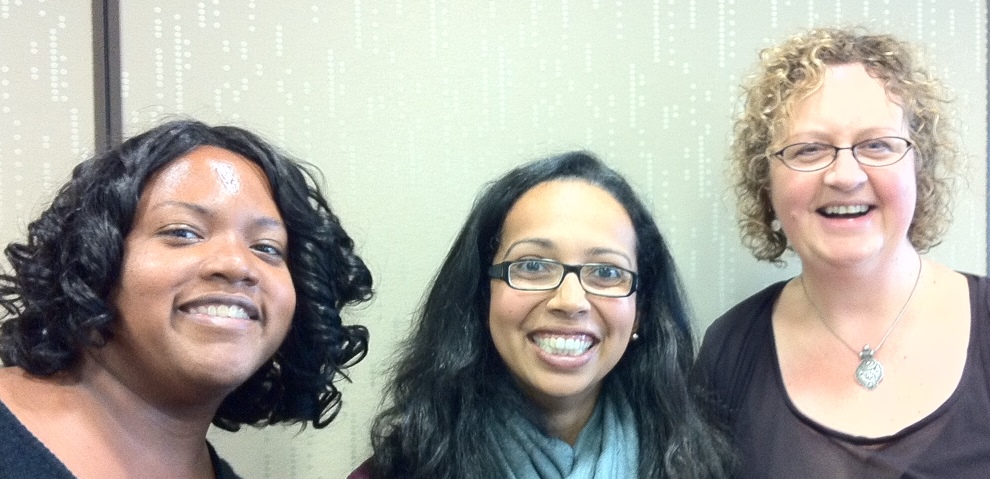
Most of us agreed that meeting up, connecting, collaborating and sharing was the most valuable part of the experience. So many interesting, passionate and innovative people, and we would continue to collaborate on Twitter (#gtasyd and #gct) and the GCT Group (sorry, closed community). I am grateful for new friendships and acquaintances. Thankyou so much to our GTA leaders, Dana Nguyen, Dr Mark Wagner, Wendy Gorton, Kern Kelley, Danny Silva and Lisa Thumann, for your expertise and passion.
Next on the agenda is formulating an action plan – how we will share what we have learned, either through presentations or in the classroom. It’s difficult to decide where to start.
As a teacher librarian, I’d like to say to my colleagues – you are already well skilled in many of the Google tools. We are experts in Search, News, Scholar, Google Books, and there are experts among us with things like Google Lit Trips. What we don’t know, we can learn from the excellent Google help and crib sheets.
So, having said that, here is my initial idea for a Google action plan – to create a community for Google PD either in Google Groups or Sites specifically for teacher librarians. This would be a place to share knowledge, ideas and material. There are experts amongst us, and it would be good to pool our collective talents to present professional development either face to face, or through slideshows and webinars. Glenda Morris and I are both GCT TLs in Victoria, and when I spoke to Glenda about this idea, she was happy to take part. There is already so much prepared by Google, for example, take a look at all the material in Google Web Search: Classroom lessons and resources.
What do you think? I would love to receive feedback for this idea. And please, if I’ve missed something you wanted to know about the Google Academy experience, please ask.
(A big thankyou, also, to Lisa Perez (TL in Chicago) who initiated meeting Glenda and me before the conference, and encouraged us to join forces as TLs).
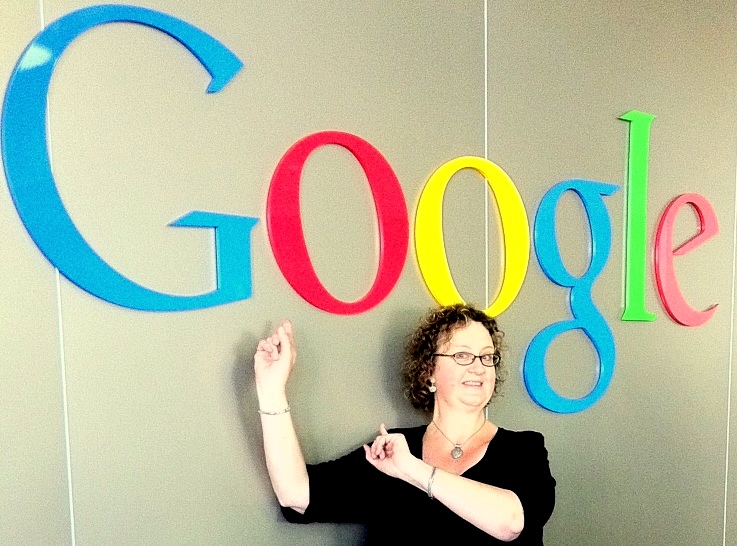





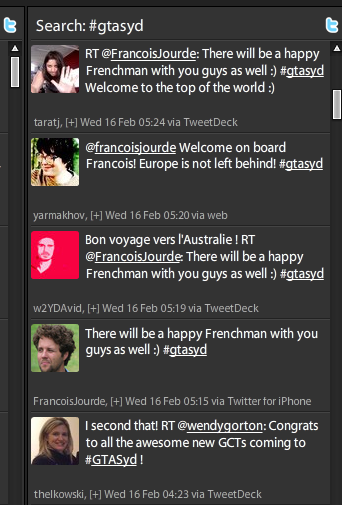

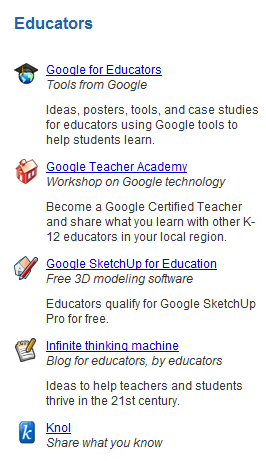
 Not sure what happens here
Not sure what happens here